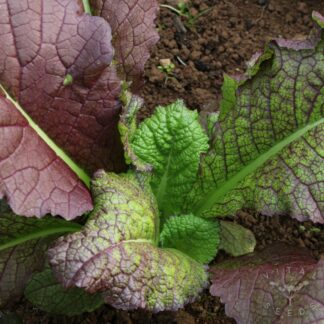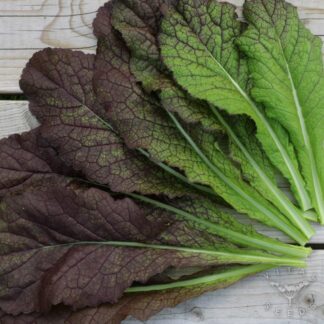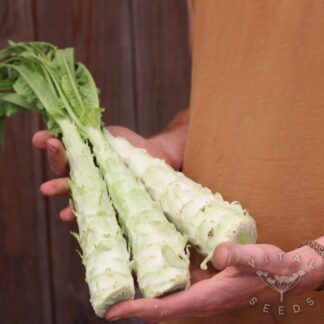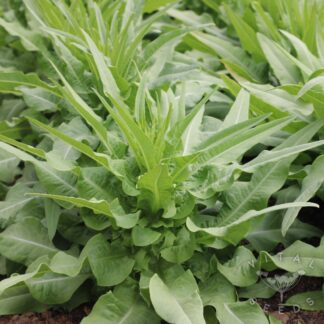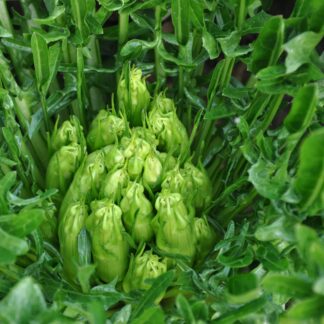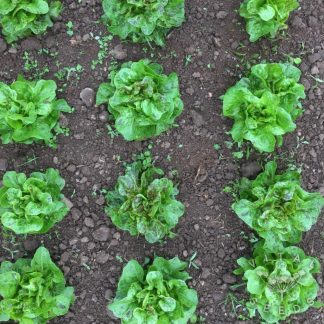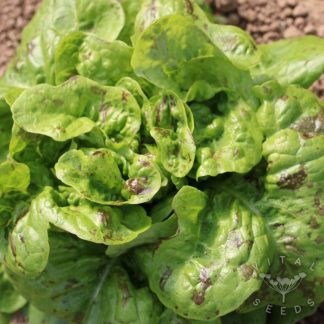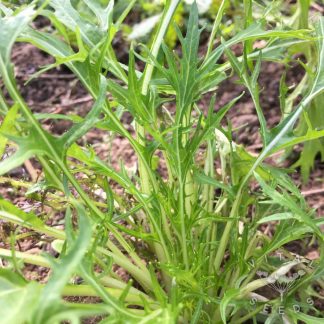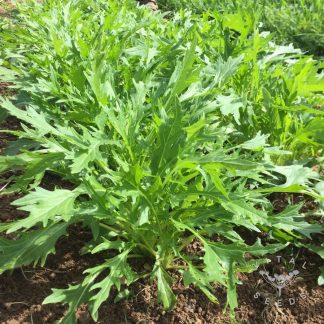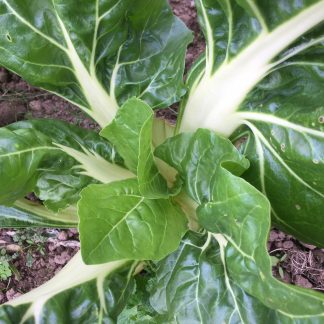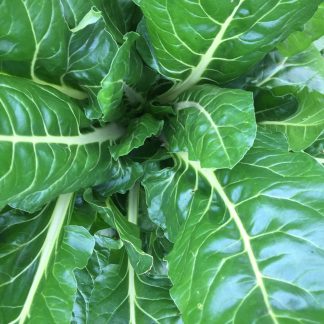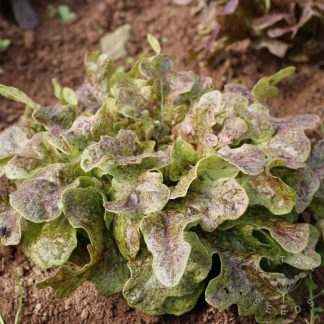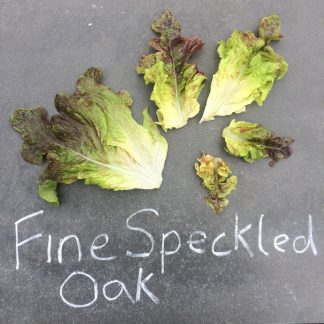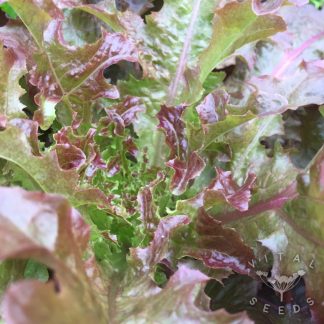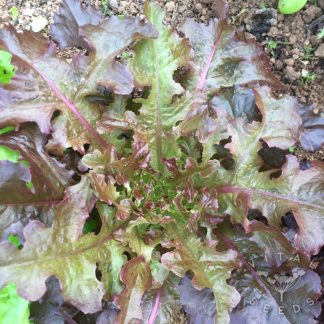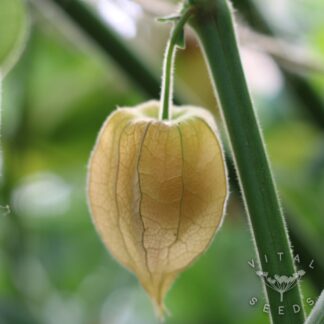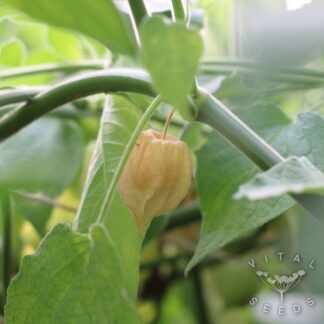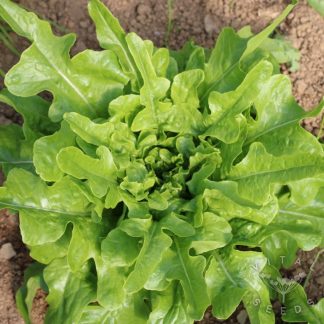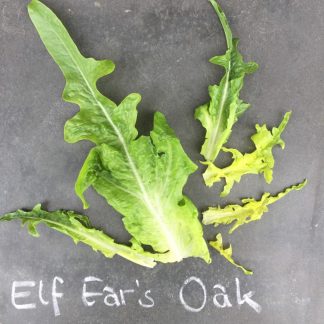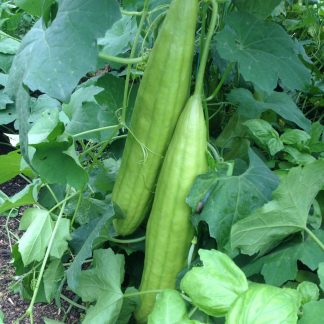Vegetable Seeds
Showing 145–156 of 175 results
-


Asian Greens – Giant Red Mustard (Organic)
£1.80 Add to basketAsian Greens – Giant Red Mustard (Organic)
Purpleish-red and green mustard with large leaves and a fiery spice. The young leaves are of a succulent, delicate and peppery flavour. When harvested fully matured, the leaves might surprise you with their bold flavour. When cooked or steamed like other greens however the taste will be mild and similar to spinach or chard. Giant Red Mustard seeds are also excellent for sprouting.
(Approximate seed count – 330) £1.80
£1.80 -


Celtuce (Organic) ***NEW FOR 2026***
£2.10 Read moreCeltuce (Organic) ***NEW FOR 2026***
Also known as Chinese Lettuce both stem and leaves are edible. A delicious and versatile vegetable popular in Asian style recipes. The stem is crunchy with a nutty flavour. Treat Celtuce as you would a lettuce growing it either under cover or outside. Harvest stems at around 15-20 cm high and a diameter of 3-4 cm. Celtuce seed does not germinate in high temperatures so with summer sowing keep very well watered.
(Approximate seed count – 300) £2.10
£2.10 -


Chicory – Puntarelle (SM4.33) (Organic)
£2.50 Add to basketChicory – Puntarelle (SM4.33) (Organic)
An interesting chicory variety grown for its hollow bolting shoots. Unlike other chicory varieties which are grown for their leaves, Puntarelle is grown for its flowering shoots. The young shoots form a ‘head’ at the base of plant and are julienned into thin strips which are then soaked in cold water to removed some of their bitterness. In the water they twist and curl into elegant crisp and crunchy shapes which are then served with a punchy dressing to make a lovely late autumn salad.
Shoots usually appear between mid-October and November.
(Approximate seed count – 100) £2.50
£2.50 -


Courgette – Tondo di Nizza (Organic)
£3.00 Add to basketCourgette – Tondo di Nizza (Organic)
A round pale green courgette with a delicate skin and fine flavour. If you’re looking for something a little bit different in your courgette patch, Tondo di Nizza would be a good choice. It is an Italian heritage variety that provides you with an abundant crop of round courgettes. Best harvested when approximately 10cm in diameter, just before the skin darkens in colour.
(Approximate seed count – 12) £3.00
£3.00 -


Lettuce – Flashy Butter Oak (Organic)
£1.98 Add to basketLettuce – Flashy Butter Oak (Organic)
A very pretty and vigorous oakleaf lettuce with dark red splashes all over pale green leaves. This lettuce was bred by Wild Garden Seed in Oregon, USA. It is an open-pollinated variety that was introduced in 2005. It is very versatile, can be picked as baby green, baby head, at full maturity or one leaf at the time. The texture is crispy and smooth, with a delicate and sweet flavour.
(Approximate seed count – 250) £1.98
£1.98 -


Asian Greens – Mizuna (Organic)
£1.68 Add to basketAsian Greens – Mizuna (Organic)
A variety of mustard greens. Mizuna is a vigorous grower, producing an abundance of stalks with green deeply serrated leaves. Mizuna has a mild piquant almost peppery taste and can be used raw in salads and also as a cooked green. It is highly resistant to the cold and can be grown throughout the winter, making those cold, short days and long nights feel healthier and a little bit spicier! The pretty yellow sprays of flowers can also be a bright addition to a salad with the same mustardy hit.
(Approximate seed count – 275) £1.68
£1.68 -


Chard – White (Organic)
£2.30 Add to basketChard – White (Organic)
A classic variety with glossy dark green leaves and thick white stems. If you need a leafy vegetable that ‘just grows’ Swiss Chard is a garden essential. From two sowings, one in the Spring and one in the Autumn, you can have chard almost all year round. In Fred’s words “Chard is just always there, even if you don’t want it, it’s still there”.
This variety is robust, vigorous and very productive. You can use the stem and the leaf separately as they have different cooking qualities. Ronja’s favourite recipe is with the whole plant. Sauté onions in some oil with a bit of chilli and the Swiss chard, add some cooked white butter beans, serve with cheese on top – just delicious!
(Approximate seed count – 200) £2.30
£2.30 -


Lettuce – Fine Speckled Oak (Organic)
£2.00 Add to basketLettuce – Fine Speckled Oak (Organic)
Fantastic and unusual oak-leaf lettuce, covered thickly in fine speckles of crimson. Fine Speckled Oak was one of Fred’s favourites in our 2018 lettuce trials. It was super healthy and had very consistent growth throughout the population. At full maturity it forms a dense colourful heart. An attractive and vigorous lettuce bred by Wild Garden Seed in Oregon, USA, that we are very pleased to offer in our catalogue.
(Approximate seed count – 175) £2.00
£2.00 -


Lettuce – Red Salad Bowl (Organic)
Price range: £1.98 through £3.00 Add to basket This product has multiple variants. The options may be chosen on the product pageLettuce – Red Salad Bowl (Organic)
Fast growing lettuce with long, burgundy red and deeply cut leaves.. This lettuce is known for its excellent taste and resistance to bolt. It has a non-heading growth habit with sweet, succulent oakleaf type leaves. We love it for its tenderness and cheerfulness in salads. As the name suggests one lettuce is usually enough to fill a whole salad bowl.
Best grown in spring, early summer and fall. However it can be grown in the hotter summer months too as it’s slow to bolt.
‘Red Salad Bowl’ was awarded the Royal Horticultural Society’s Award of Garden Merit (AGM) in 1993.
(Approximate seed count – 250) Price range: £1.98 through £3.00
Price range: £1.98 through £3.00 -


Physalis – Columbia Cherry (Organic) ***NEW FOR 2026***
£2.10 Add to basketPhysalis – Columbia Cherry (Organic) ***NEW FOR 2026***
A cape gooseberry with cherry-shaped fruits. This is a delicious variety of physalis with a full and fruity flavour, with an excellent balance of sweet and sour. The fruits ripen from September until the first frosts, growing on plants that can be very tall and bushy. Large, superb variety developed in Germany.
(Approximate seed count – 25) £2.10
£2.10 -


Lettuce – Elf Ears Oak (Organic)
Price range: £2.00 through £3.90 Add to basket This product has multiple variants. The options may be chosen on the product pageLettuce – Elf Ears Oak (Organic)
An oak-leaf lettuce with pointy elongated ‘ear’ tips and a crispy texture. Elf Ears Oak is a tasty and beautiful lettuce with slightly savoyed leaves that have an elongated tip and a dense compact heart. The leaves almost resemble a dandelion in terms of shape but the good taste, sweetness and crunch make it a superior salad ingredient. It was bred by Frank Morten from Wild Garden Seed in Oregon, USA.
 Price range: £2.00 through £3.90
Price range: £2.00 through £3.90 -


Luffa – Luffa aegyptiaca (Organic)
£2.65 Add to basketLuffa – Luffa aegyptiaca (Organic)
Annual climbing plant producing cucumber like fruits that can be made into a natural sponge. It’s part of the cucurbit family originating in India and produces 30 to 40 centimetres long fruits. Whilst the young fruits are actually edible, the mature ones can be boiled or dried to remove the flesh, revealing the sponge like fibres.
Germination can be tricky, needs hot temperatures constantly between 24 and 30°C and a long season to make a sponge.
The Luffas should be ready to harvest in October, once the skin of the fruits starts to wither. Harvest and stack them up somewhere warm, dry and airy, making sure to turn them. The skin should reach a point where it can easily peel off leaving the fibrous inner. Shake the seeds out and give a thorough wash to clean it. The luffa is likely to have natural brown markings on it; shop-bought luffas are bleached. (Approximate seed count – 15)
 £2.65
£2.65
Showing 145–156 of 175 results
